Cognitive Behavioral Approaches – Flashcards
Unlock all answers in this set
Unlock answersquestion
What is Cognitive Behavioral Approaches?

answer
Behavioral, cognitive, and cognitive-behavioral approaches are a group of related counseling methods that emphasize using active techniques and psychoeducation to achieve changes in behaviors, cognition, and affect
question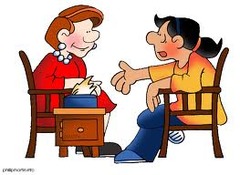
Role of counselor in CB approach

answer
Role of counselors is educational, using expertise to help clients learn to manage thoughts, feelings, emotions.
question
BEHAVIORAL role in Cognitive BEHAVIORAL Approach

answer
Use classical conditioning, operant conditioning, social learning theory. Analyzes and intervenes on observable, measurable behaviors.
question
Evolution of behavioral approaches
answer
First wave: original, "pure" approaches based on classical conditioning, operant conditioning, social learning theory Second wave: Integration of cognitive approaches with behavioral (before 1980 was separate) Third wave: Mindfulness approaches transforming behavioral practices to use compassionate acceptance of thoughts and feelings to paradoxically promote change
question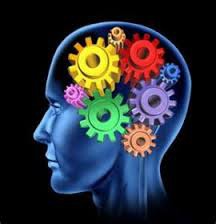
COGNITIVE role in COGNITIVE Behavioral Approach

answer
Based on the premise that: A. Psychological disorders are characterized by dysfunctional thinking/beliefs B. Improvement results from modifying dysfunctional thinking/beliefs Can be used: A. Separately from behaviorism B. As part of integrated cognitive-behavioral practice C. As metatheory for general integrative approach
question
How cognitive and behavior work together

answer
They integrate both behavioral and cognitive techniques to change thoughts, behaviors, and feelings
question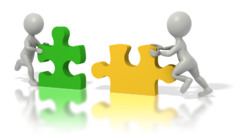
Distinct forms of cognitive-behavioral approaches that have been developed over the years

answer
Multimodal Therapy Rational Emotive Behavior Therapy (REBT) Reality Therapy Mindfulness-based approaches
question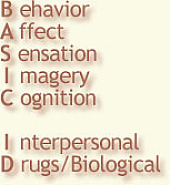
Multimodal Therapy

answer
An approach that uses an eclectic set of interventions. This is based on assessment of the BASIC-ID (Behavior, Affect, Sensation, Imagery, Cognition, Interpersonal Relationships, Drug Treatment) *questions for BASIC-ID is found on pp. 212-213
question
REBT
answer
This approach uses a confrontational style to dispute irrational beliefs They use ABC Analysis to help clients identify the belief (B) that results in symptomatic consequences (c) in response to activating events (A).
question
Reality Therapy
answer
This therapy is based on the premise that people are driven by five basic needs: survival, love, power, freedom, and fun People CHOOSE everything they do (including being/feeling miserable)
question
Mindfulness-based approach

answer
This approach use observation of the mind/acceptance of thoughts and feelings to reduce anxiety, depression, addictive behaviors, and other symptoms
question
Specific approaches in Mindful-based approaches
answer
MBSR (Mindfulness-based Stress Reduction) MBCT(Mindfulness-based Cognitive Therapy) Dialectical Behavior Therapy Acceptance and Commitment Therapy A = Accept and embrace difficult thoughts and feelings C = Choose and commit to a life direction that reflects who the client truly is T = Take action steps toward this life direction
question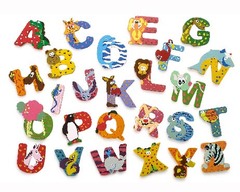
ABC Model

answer
This model highlights the essence of all cognitive approaches: Our thoughts about a situation --not the situation itself --are the source of emotional and behavioral problems A = Activating event → B = Belief about A → C = Emotional & Behavioral consequences
question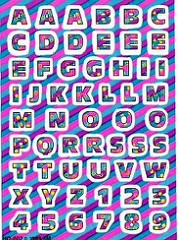
DEF Model

answer
This model help the clients dispute troubling beliefs and replace them with new ones D = Disputing belief → E = Effect → F = New feeling
question
Overview of CB Counseling process

answer
Step 1: Assessment (of baseline functioning) Step 2: Target (specific) behaviors/thoughts for change Step 3: Educate (irrational thoughts and dysfunctional patterns) Step 4: Replace and retrain (replace dysfunctional behaviors and thoughts)
question
Empathy in CB context?

answer
Counselors use empathy to create rapport, which allows them to get to the "real" interventions that change a client's' behaviors/thoughts/emotions
question
Importance of baseline functioning and how do counselor employ this to their clients?

answer
They provide starting point for measuring change Counselor usually look at the clients' frequency, duration, and severity of their specific behavioral symptoms
question
Functional Analysis?

answer
This Involves careful analysis of the antecedents and consequences of problem thoughts and behaviors in order to identify naturally occurring triggers, rewards, punishments to identify cause and effect patterns.
question
Aaron Beck's cognitive approach

answer
This approach believe that counseling process must identify core schemas, and core beliefs not just specific thoughts about an issue
question
Automatic Thoughts

answer
knee-jerk reactions to distressing situations "If my friend doesn't return my call in 24 hours, she doesn't really like me."
question
Intermediate Thoughts

answer
Extreme or absolute rules, more general, shape automatic thoughts "Good friends always return calls quickly"
question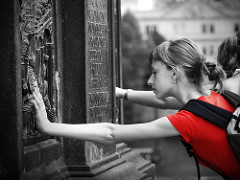
Core beliefs

answer
Global and absolute, about ourselves. "I am worthless"
question
Two general unifying principles that underlie most core beliefs
answer
Autonomy - beliefs about being effective/productive vs. helpless Sociotropic - beliefs about being loveable vs. unloveable
question
Schemas

answer
This is the deepest level of cognitive structure and cognitive frameworks in the mind "I'm utterly worthless if even my best friend won't take the time to call me."
question
Ultimate goal in Beck's cognitive approach

answer
To change the client's schemas
question
Common distortions in automatic thoughts and intermediate beliefs

answer
1. Arbitrary inference (a belief based on little evidence) 2. Selective abstraction (focusing on one detail while ignoring the context and other obvious details) 3. Overgeneralization (generalizing one or two incidents to make a broad, sweeping judgement) 4. Magnification and Minimization (extremely overemphasizing or underemphasizing based on the facts) 5. Personalization (external events are attributed to oneself) 6. Dichotomous thinking (All-or-nothing thinking) 7. Mislabeling (assigning personality trait to someone based on a handful of incidents, often ignoring exceptions) 8. Mind reading (believing you know what other is thinking or will do without supporting evidence, often become barrier to communication)
question
Ellis' Three Basic Musts

answer
1. Perfection-based worth : I must be thoroughly competent, adequate, achieving, and loveable at all times, or else I am an incompetent worthless person. 2. Justice for me : People must treat me kindly and fairly at all times, or else I can't stand it, and they are bad, evil, rotten people who should be severely blamed. 3. Effortless perfection: Things and conditions must be exactly be the way that I want them to be otherwise life is awful, terrible, and unbearable.
question
Listof all the interventions described in CB approach

answer
Psychoeducation Socratic Method & Guided Discovery Thought Records Disputing Beliefs (DEF portion of ABC model) Labeling Cognitions Problem Solving and Coping Skills Training Changing Self-Talk (Stress Inoculation Training) Cost-Benefit Analysis Classical Conditioning Operant Conditioning Systematic Desensitization In Vivo Exposure and Flooding Eye Movement Desensitization and Reprocessing



